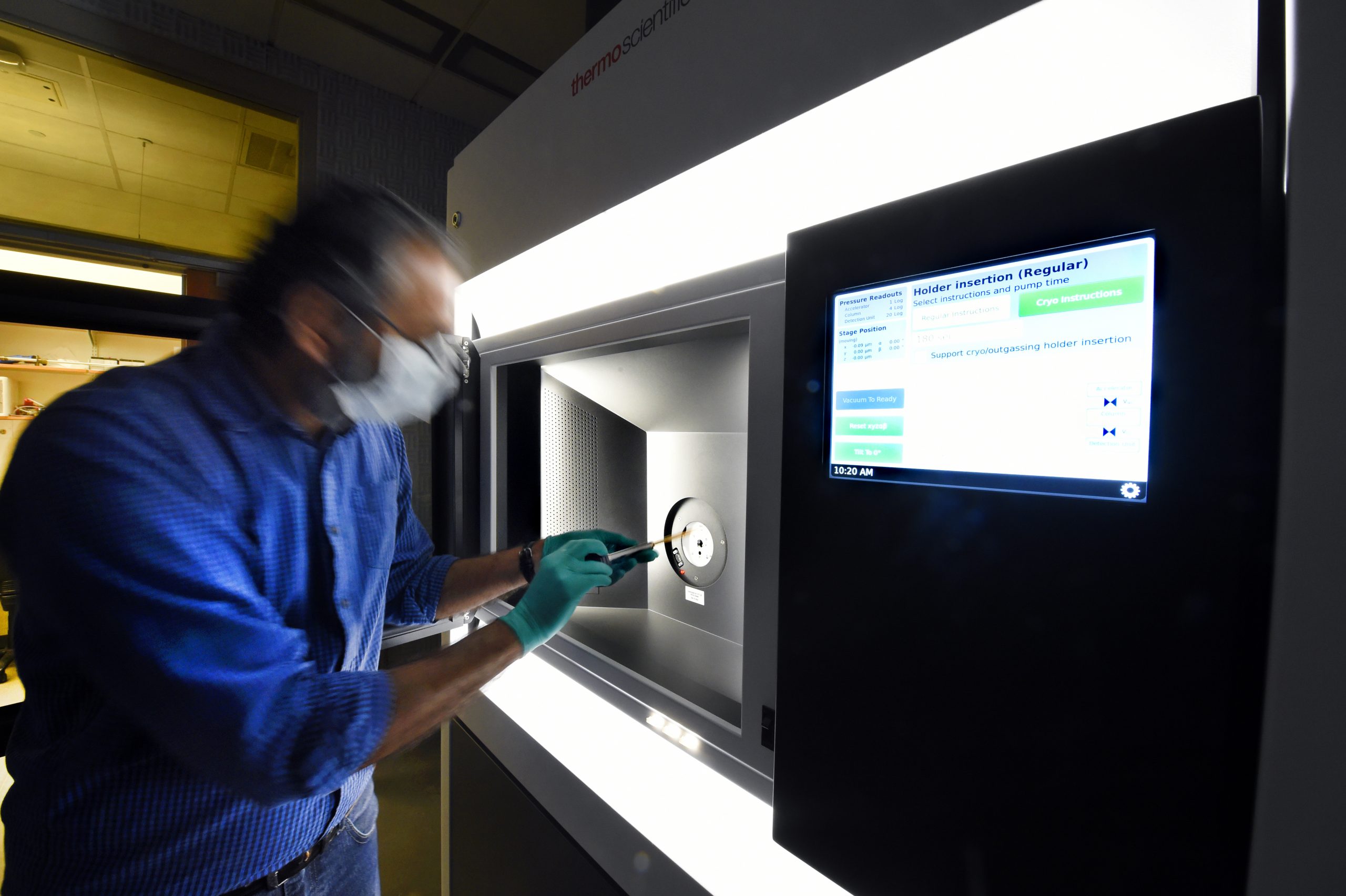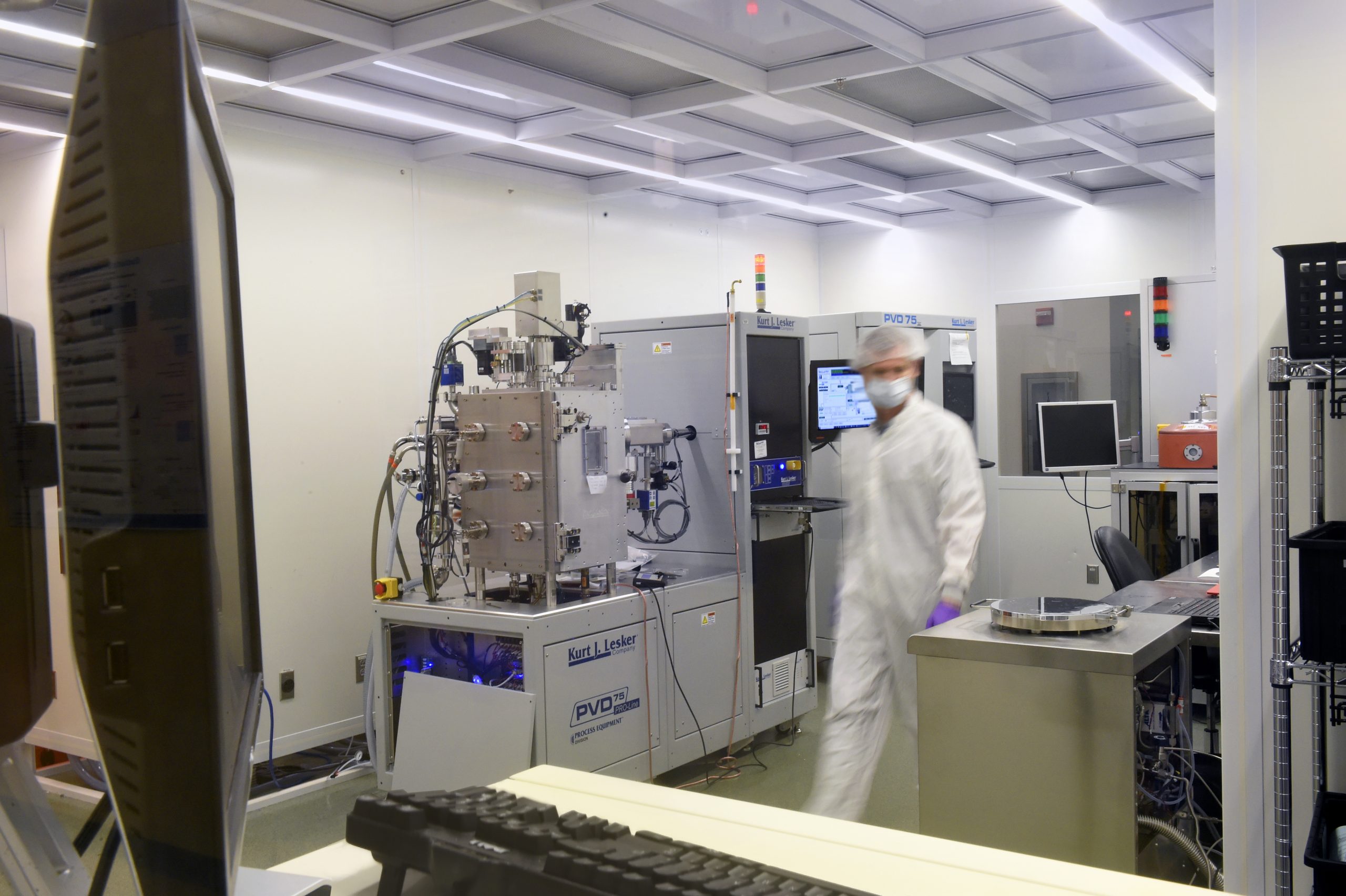UNC-Chapel Hill joins Duke and NC State in a continued commitment to expanding nanotechnology access with NSF grant to the Research Triangle Nanotechnology Network (RTNN).

To advance nanoscale science, engineering and technology, the National Science Foundation will invest a total of $84 million over five years. A renewal grant of $5.5 million over five years will go to the Research Triangle Nanotechnology Network (RTNN), a partnership between UNC-Chapel Hill, Duke and NC State.
RTNN enables innovation and commercialization of promising new nanotechnologies and facilitates public education by providing technical leadership and open access to comprehensive and dynamic nanotechnology laboratories, equipment and research expertise.
The UNC co-principal investigator is James F. Cahoon, associate professor of chemistry and executive director of core research facilities in the College of Arts & Sciences. At UNC, the effort will be led by the Chapel Hill Analytical and Nanofabrication Laboratory (CHANL), a hub for experimentation and discovery based in the department of applied physical sciences.

“CHANL is connected to a nationwide network of nanotechnology expertise and capabilities, called the National Nanotechnology Coordinated Infrastructure,” Cahoon said. “This NSF-funded network facilitates the sharing of best practices on both research and education as well as the coordination of new initiatives across the United States. In the next five years, the RTNN will continue the success of the first five but also broaden our impact outside the Triangle in our home state of North Carolina, as well as push our research boundaries into emerging areas of convergent science enabled by nanotechnology.”
In the first five years of funding, the RTNN has been a national focal point for enabling innovative nanoscience and nanotechnology research, discovery, workforce development and education through:
- Open access to an evolving and integrated suite of cutting-edge fabrication and characterization facilities.
- Engagement of faculty and user populations with diverse research expertise to support the development of new processes, tools and instrumentation.
- Innovative training programs, outreach and meetings/workshops to reach and educate new user populations. The RTNN currently reaches more than 10,000 people per year through a variety of nanotechnology educational and outreach programs, particularly focusing on under-served populations in STEM.
“The renewal award reinforces the sustained high quality and impact of the nanotechnology facilities, research and educational programs in the Research Triangle region of North Carolina,” said Jacob Jones, a professor of materials science and engineering at NC State and principal investigator of the grant. “It is important to our universities because it allows us to continue supporting exciting nanotechnology programs that serve both local and national interests.”
“This program has brought national acclaim and nanotechnology resources to our region,” added Nan Jokerst, the J. A. Jones Distinguished Professor of Electrical and Computer Engineering, executive director of the Shared Materials Instrumentation Facility at Duke and a co-principal investigator of the grant. “We’ve engaged in multiple innovative approaches with this program in the first five years, and we are tremendously pleased to continue our work with the renewal of this highly competitive grant.”
